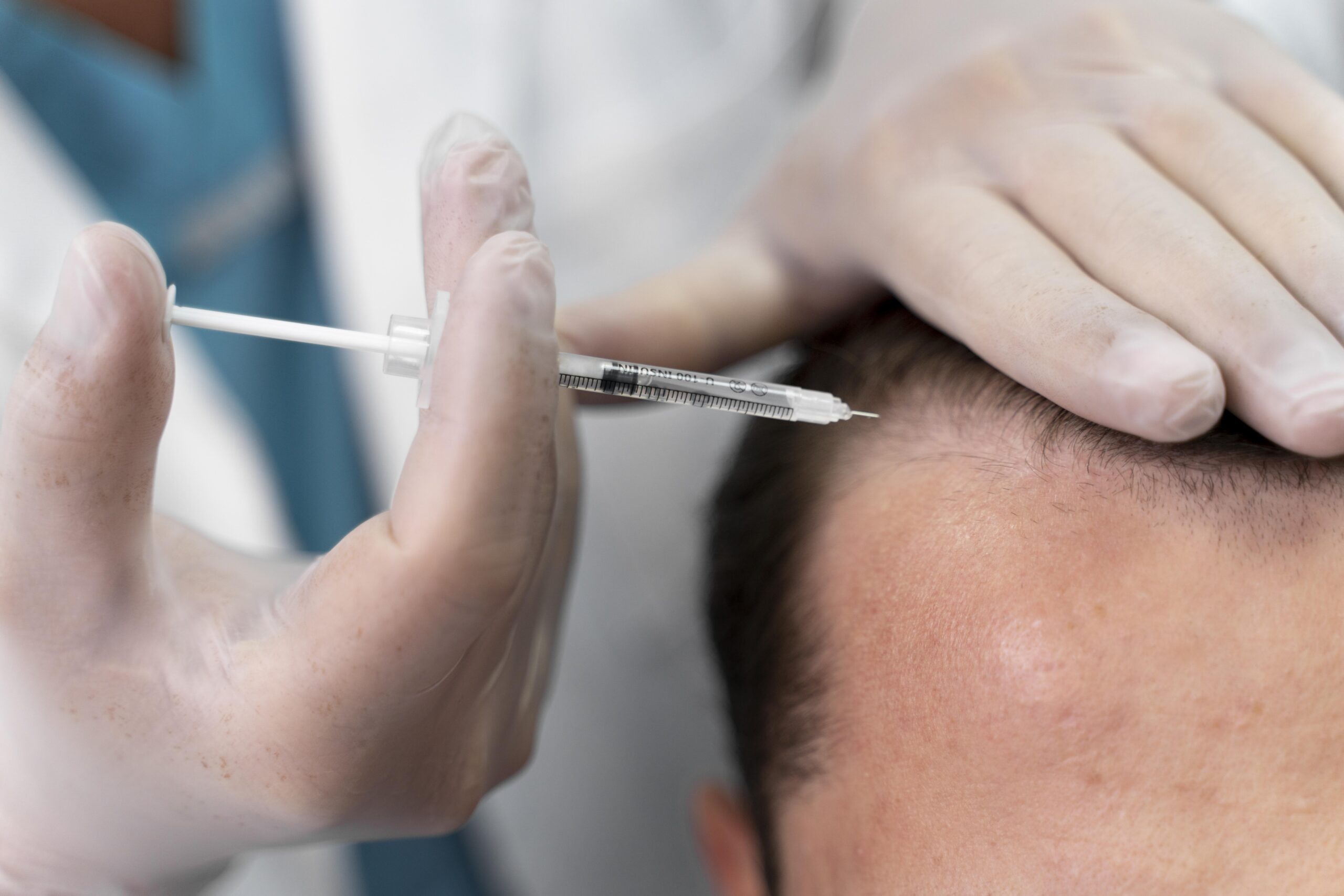
- By: auraskinandhaircosmeticclinic@gmail.com
- 23/08/2024
DIY vs. Professional Hair Care: What You Need to Know Compare the benefits of DIY treatments with professional care.
### **DIY vs. Professional Hair Care: What You Need to Know**
When it comes to hair care, you have two main approaches: DIY treatments and professional care. Each has its benefits and limitations. Understanding these can help you make informed decisions about how to best maintain and enhance your hair. Here’s a detailed comparison of DIY and professional hair care options.
—
### **DIY Hair Care**
**1. **Cost-Effectiveness:**
– **Advantages:** DIY treatments are often more affordable than salon or clinic treatments. You can find many ingredients in your kitchen or at local drugstores.
– **Disadvantages:** Some ingredients may be less effective or less concentrated compared to professional products.
**2. **Customization:**
– **Advantages:** DIY allows you to customize treatments based on your specific needs and preferences. You can experiment with different natural ingredients to find what works best for you.
– **Disadvantages:** It may be challenging to achieve the same level of precision and efficacy as professional treatments.
**3. **Convenience:**
– **Advantages:** DIY treatments can be done at home at your convenience, saving time and eliminating the need for appointments.
– **Disadvantages:** They may require more preparation and application time compared to quick professional treatments.
**4. **Control Over Ingredients:**
– **Advantages:** You have full control over the ingredients used, allowing you to avoid harsh chemicals and opt for natural options.
– **Disadvantages:** Without proper knowledge, you might mix incompatible ingredients or use products that could cause adverse reactions.
**5. **Examples of DIY Treatments:**
– **Hair Masks:** Avocado, honey, and olive oil masks for hydration and nourishment.
– **Scalp Treatments:** Coconut oil or tea tree oil for soothing and reducing dandruff.
– **Hair Rinses:** Apple cider vinegar for shine and pH balance.
—
### **Professional Hair Care**
**1. **Expertise and Experience:**
– **Advantages:** Professional treatments are administered by trained specialists who have in-depth knowledge of hair types, conditions, and effective treatments.
– **Disadvantages:** This expertise comes at a higher cost and requires appointments.
**2. **Advanced Techniques:**
– **Advantages:** Professionals use advanced techniques and technologies, such as laser treatments, chemical peels, and high-quality products, that can deliver faster and more noticeable results.
– **Disadvantages:** These treatments can be more expensive and may require multiple sessions for optimal results.
**3. **Safety and Effectiveness:**
– **Advantages:** Professional products and procedures are often more effective and safer due to their formulation and application. Professionals can also provide customized solutions based on a detailed assessment.
– **Disadvantages:** There is a risk of side effects or complications if treatments are not suited to your specific needs or if administered improperly.
**4. **Long-Term Results:**
– **Advantages:** Professional treatments can offer longer-lasting results and address more complex issues such as severe hair loss, color correction, or significant damage.
– **Disadvantages:** They may require ongoing maintenance or follow-up treatments to sustain results.
**5. **Examples of Professional Treatments:**
– **Haircuts and Styling:** Precision cuts and styling by skilled stylists for personalized looks.
– **Coloring and Highlights:** Advanced techniques for vibrant and even color, including balayage, ombre, and corrective color.
– **Hair Treatments:** Keratin treatments for smoothness, PRP therapy for hair regrowth, and deep conditioning treatments for intense repair.
—
### **Comparative Summary**
**1. **Cost and Accessibility:**
– **DIY:** Generally more budget-friendly and convenient for at-home use.
– **Professional:** More expensive but provides access to expert care and advanced treatments.
**2. **Customization and Precision:**
– **DIY:** Allows for personal customization but may lack the precision of professional treatments.
– **Professional:** Offers expert assessment and tailored treatments with precise application.
**3. **Safety and Efficacy:**
– **DIY:** Risk of incorrect usage or allergic reactions; effectiveness varies.
– **Professional:** Typically safer and more effective, with controlled environments and expertise.
**4. **Results and Maintenance:**
– **DIY:** Suitable for maintenance and general care; may require consistent use for results.
– **Professional:** Better for addressing specific issues or achieving dramatic changes; may require follow-up treatments.
—
### **Conclusion**
Both DIY and professional hair care have their place in a comprehensive hair care routine. DIY treatments are great for routine maintenance, cost-effective solutions, and natural remedies. Professional care is ideal for more serious concerns, advanced treatments, and personalized solutions. Combining both approaches—using DIY methods for regular upkeep and seeking professional help for specific issues—can provide the best overall results for healthy, beautiful hair.

